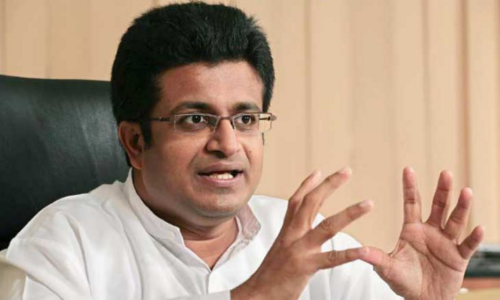COLOMBO: Sri Lanka’s state-run hospitals are running out of life-saving medicines due to a shortage of dollars needed to import essentials as the country reels from a dire economic crisis, officials said on Tuesday.
Teaching Hospital Peradeniya which serves a population of 2.4 million people in the Central province said it was suspending all routine surgeries and was out of anaesthetic drugs and other essentials for operations.
A key health trade union said the problem at Peradeniya was common in most state hospitals where suppliers had not been paid for over six months.
A surgeon at the main National Hospital in Colombo said they were short of many vital medicines and patients requiring human insulin were told to bring their own.
“The situation is very grave and we need a disaster management initiative to deal with the worsening situation,” said Ravi Kumudesh, the head of the Medical Laboratory Technologists Association (MLTA).
He said they were unable to carry out diagnostics as most chemicals and solutions needed for their tests were not freely available at state hospitals.
Meanwhile, the government said it allowed suppliers — hit by higher costs — to hike by 30 per cent prices of all medical devices, including stents for heart patients.
Sri Lankans are forced to spend long hours to buy food, fuel and even medicines as the dollar shortage has led to scarce imports in the country’s worst economic crisis since independence in 1948.
The country’s inflation hit a record 17.5 percent in February with food inflation hitting 25 per cent.
The government is seeking an IMF bailout after the country’s foreign currency reserves fell to $2.0 billion, down from $7.5 billion when the current government took over in November 2019.
Indian Foreign Minister S. Jaishankar, who was in Sri Lanka for a regional meeting, said he was “disturbed” by the medical shortages and asked the embassy to look into helping.
The Sri Lankan health ministry said it was also rushing fresh supplies to resume surgeries at Peradeniya. India, China and Bangladesh have stepped in to help Sri Lanka weather a foreign exchange shortage that has forced it to devalue its currency amid soaring inflation, and to seek International Monetary Fund (IMF) assistance.
Sri Lanka’s worst economic crisis in decades is a result of mismanaged government finances and ill-timed tax cuts, alongside the impact of the Covid-19 pandemic.
With only $2.31 billion left in reserves, Sri Lanka has to repay debt of about $4 billion over the rest of this year, including a $1-billion international sovereign bond that matures in July.
Last May, Bangladesh’s central bank agreed to a $200 million swap, the first swap arrangement between the two countries.
In August, Sri Lanka received its $787 million share of the global $650 billion Special Drawing Rights (SDR) allocation from the IMF. This was part of pandemic support extended by the lender and the funds were used to top up reserves.
Foreign Minister Basil Rajapaksa is set to hold talks with the IMF in April.
Published in Dawn, March 30th, 2022














































